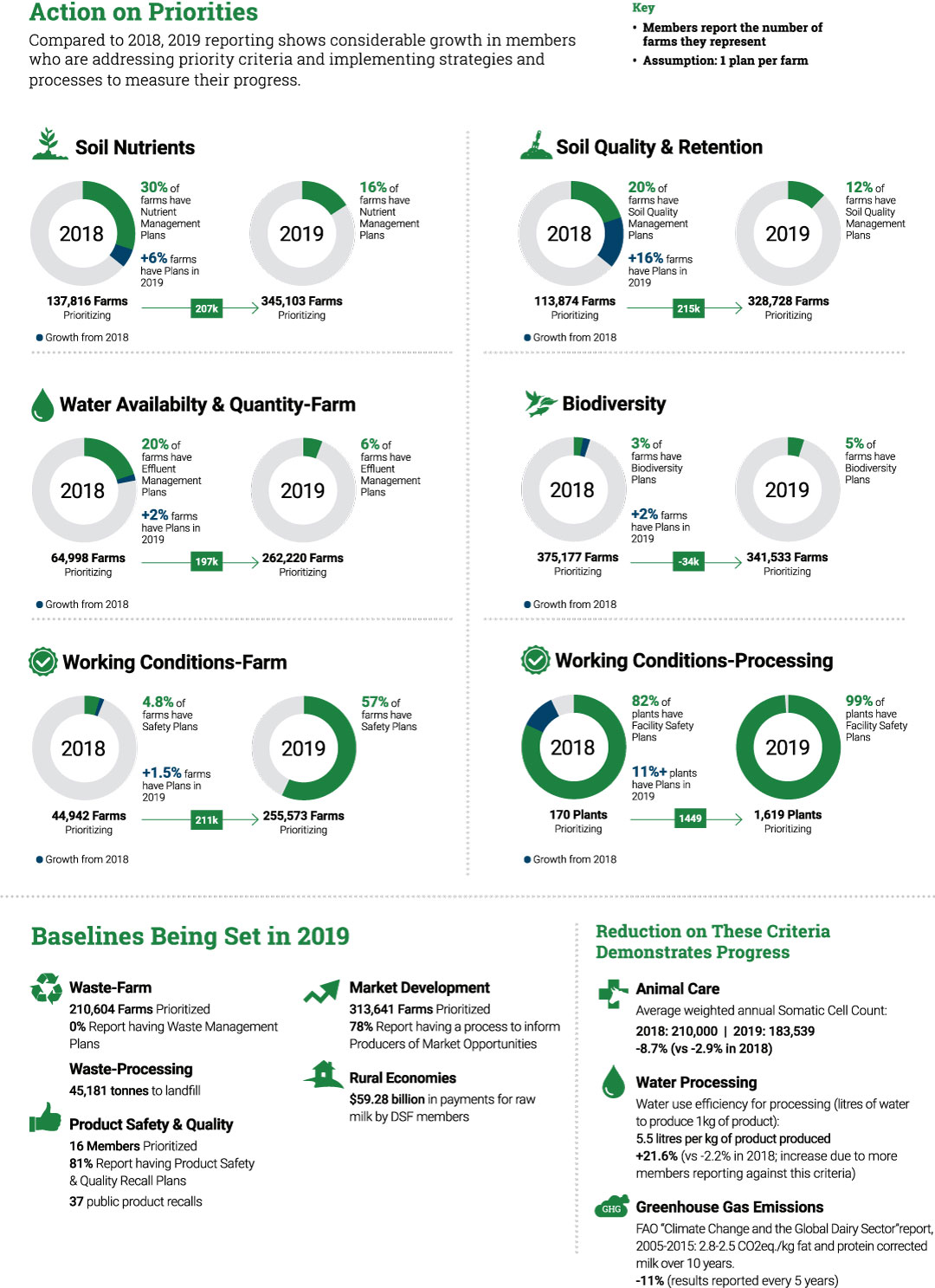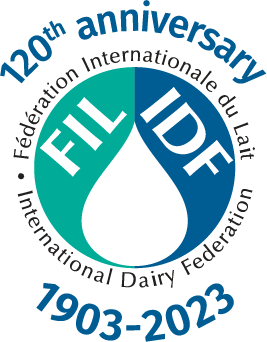Share this page


AUTHOR
Brian Lindsay Dairy Sustainability Framework
Abstract
Like all sectors, dairy understands it must improve the sustainability of its products. The Dairy Sustainability Framework (DSF) with broad multi-stakeholder support, was created by the sector in order to share and improve its sustainability activities, regardless of production system or geography. Importantly, DSF goes beyond implementation to provide global monitoring and validated aggregated reporting to monitor the continuous improvement of the global dairy sector.
The DSF currently reports the sustainability progress on 30% of global milk production. By working closely with organizations such as the International Dairy Federation, that number should increase over time.
DSF goes beyond implementation to provide global monitoring and validated aggregated reporting to monitor the continuous improvement of the global dairy sector. Currently the DSF represents 46% of the formal milk market.
Brian Lindsay Tweet
DSF membership
DSF membership ranges from individual dairy processors (implementing members) that conduct sustainability improvement programs with their suppliers, to aggregating members that coordinate a number of dairy industry stakeholders and provide an annual aggregated progress report to the DSF.
Members undertake a materiality analysis to identify which of the 11 DSF Criteria (covering the three pillars of sustainability – Social, Economic and Environmental) they will focus on. DSF members acknowledge that all 11 criteria are vitally important but the materiality assessment helps identify which are the most pressing on which to focus. Members remain in control locally and develop their own improvement programs be they at farm or manufacturing level (The DSF is a total value chain initiative). The DSF provides knowledge/resource sharing and comparing platforms for members to benchmark and explore solutions in a pre-competitive environment.
The University of Nottingham (UK) processes DSF’s data against an agreed protocol and generates the annual aggregated reports. This reporting not only considers the DSF Indicator Metrics, it also captures the growth in membership and prioritisation of the criteria. The reports allow members in their unique geographies to monitor their progress against the global dairy sector’s performance and provides invaluable data for other sustainability initiatives such as the Dairy Declaration of Rotterdam, UN Framework Convention on Climate Change (UNFCCC) , UN Food Systems Summit, or other relevant platforms.
Dairy sector colleagues who are not already part of the DSF are encouraged to get in contact either directly or through the IDF so they too can benefit from the DSF’s implementation process and collaborative approach. By engaging you will be supporting the global dairy sector in demonstrating that it is a responsible sector that takes its sustainability commitments seriously.
This publication clearly demonstrates the ‘commitment and activity’ of the dairy sector in addressing sustainability at a local level with a focus on the UN Food Systems Summit Action Tracks.








